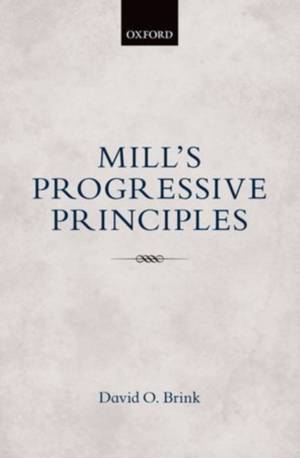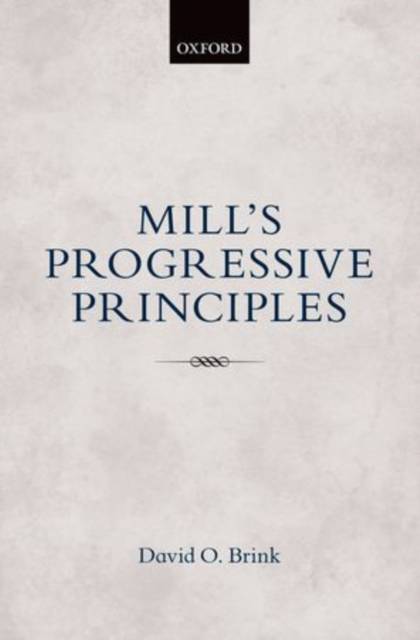
- Afhalen na 1 uur in een winkel met voorraad
- Gratis thuislevering in België vanaf € 30
- Ruim aanbod met 7 miljoen producten
- Afhalen na 1 uur in een winkel met voorraad
- Gratis thuislevering in België vanaf € 30
- Ruim aanbod met 7 miljoen producten
Omschrijving
In Mill's Progressive Principles David Brink provides a systematic reconstruction and assessment of John Stuart Mill's contributions to the utilitarian and liberal traditions, examining his first principles and their application to issues of representative democracy and sexual equality. Brink defends novel interpretations of key elements in Mill's moral and political philosophy, including his concepts of motivation, happiness, duty, proof, harm and the harm principle, freedom of expression, anti-paternalism, representative democracy and weighted voting, and sexual equality. However, the most distinctive aspect of this account of Mill's commitments is the case it makes for a perfectionist reading of his conception of happiness and the significance this has for other aspects of his moral and political philosophy. On this perfectionist conception, the chief ingredients of happiness involve the exercise of a person's capacities for practical deliberation and decision that mark us as progressive beings. Once this perfectionist theme is made explicit, it can be shown to be central to Mill's views about utilitarianism, liberalism, rights, democratic government, and sexual equality.
Specificaties
Betrokkenen
- Auteur(s):
- Uitgeverij:
Inhoud
- Aantal bladzijden:
- 328
- Taal:
- Engels
Eigenschappen
- Productcode (EAN):
- 9780199672141
- Verschijningsdatum:
- 10/06/2013
- Uitvoering:
- Hardcover
- Formaat:
- Genaaid
- Afmetingen:
- 160 mm x 236 mm
- Gewicht:
- 657 g

Alleen bij Standaard Boekhandel
+ 338 punten op je klantenkaart van Standaard Boekhandel
Beoordelingen
We publiceren alleen reviews die voldoen aan de voorwaarden voor reviews. Bekijk onze voorwaarden voor reviews.







